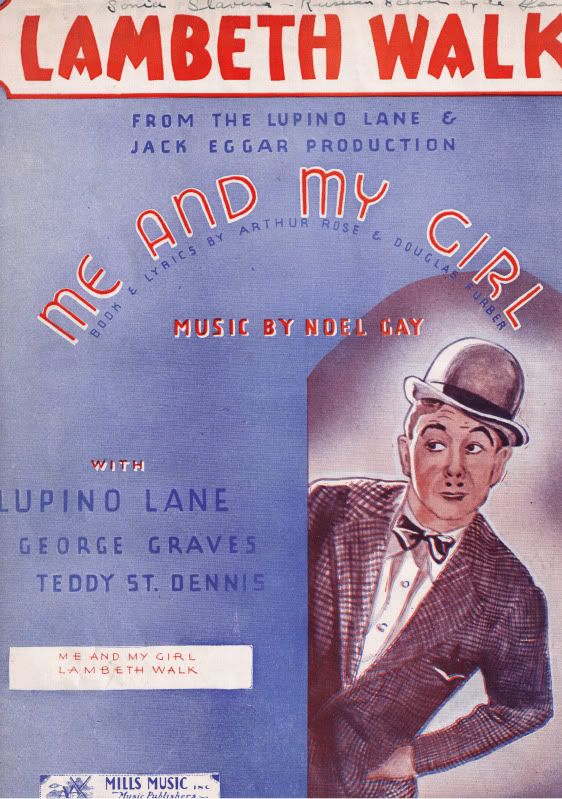Fleur De Guerre
Call Me a Cab
- Messages
- 2,056
- Location
- Walton on Thames, UK
I learned the Lambeth Walk at a dance at Christmas! It's fun!
H.Johnson said:Trust us, dear lady, no self respecting person from South of the Thames* would have said, 'Hey!' at the time. It should, of course, be spelled 'Oi!'. Is this important? The political and socialogical significance of this word is enormous and a whole book could be written about it. As well as slogans from the Spanish Civil War the cry features in reports of the Battle of Cable Street in October 1936. It renewed its significance in the 1960s as a shout (and battlecry) of working class white skinheads and in the 1970s became the name of a radical movement in itself that warrants a Wikipedia entry although the wiki typically neglects its earlier working class political derivation. http://en.wikipedia.org/wiki/Oi!
* Despite what you may hear, with respect, people from 'down Lambeth way' are not 'Cockneys', although Central Londoners had more in common with East Enders than did the 'toffs' in the West End.
benstephens said:I use Oy as I use Serjeant as I feel oi is the newer spelling. I think its origins are yiddish being Oy, and this was how it was introduced into our language with the imigrants to the East end of London at the turn of the 20th century. I may be wrong though?
Kindest
Ben
benstephens said:

H.Johnson said:That doesn't fit the metre - 'Doing the Lambeth Walk - salam!'
 John Lofgren Monkey Boots Shinki Horsebuttt - $1,136 The classic monkey boot silhouette in an incredibly rich Shinki russet horse leather.
John Lofgren Monkey Boots Shinki Horsebuttt - $1,136 The classic monkey boot silhouette in an incredibly rich Shinki russet horse leather.  Grant Stone Diesel Boot Dark Olive Chromexcel - $395 Goodyear welted, Horween Chromexcel, classic good looks.
Grant Stone Diesel Boot Dark Olive Chromexcel - $395 Goodyear welted, Horween Chromexcel, classic good looks.  Schott 568 Vandals Jacket - $1,250 The classic Perfecto motorcycle jacket, in a very special limited-edition Schott double rider style.
Schott 568 Vandals Jacket - $1,250 The classic Perfecto motorcycle jacket, in a very special limited-edition Schott double rider style.